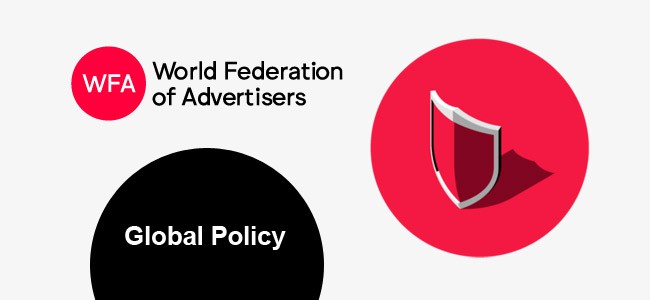Welcome to the first edition of WFA Global Policy Brief
This monthly newsletter aims to keep WFA members on top of the biggest issues facing brand marketers today at a global level. Our first edition will look at the latest developments in relation to fake news, influencer marketing, gender stereotypes and new policy developments on privacy regulation and brand safety.
We hope you find it useful and would welcome any feedback you might have at WFAGlobalPolicyBrief@wfanet.org
GDPR for US?
On June 28, California adopted the California Consumer Privacy Act (CCPA), a far-reaching privacy law, which has some of the hallmarks of the EU’s GDPR insofar as it looks to strengthen consumer privacy rights. This is already having an impact beyond Californian state lines as there are talks about proposing legislation at the federal level to prevent a patchwork of rules from appearing across the U.S., according to the ANA’s Dan Jaffe who presented the new law to WFA’s Digital Governance Exchange in New York. For more on CCPA, contact Erard (e.gilles@wfanet.org) and for a perspective on life after GDPR, you might want to read Catherine’s blog here.
Gender stereotypes in advertising
Diversity and gender equality were the talk of the town at Cannes Lions this year. UN Women Executive Director, Phumzile Mlambo-Ngucka, who leads the Unstereotype Alliance, released an Open Letter calling on the industry to take responsibility for social change. Meanwhile at local level, lawmakers in Stockholm voted to ban sexist or objectifying ads. This follows similar bans on ‘sexist’ adverts adopted in Paris, Geneva and London. If you’d like to know more about WFA’s work on gender stereotypes contact Camelia (c.cristache@wfanet.org) – and if you didn’t see our Guide to Gender Portrayal in Advertising, then please take a look here.
Taking the brand safety agenda to policymakers
Few topics are more top of mind right now for senior marketers than brand safety. Advertisers, left reeling from two years of headlines capturing ads next to inappropriate and explicit content, have drawn up the WFA Global Media Charter, which sets out what brands need from the digital advertising ecosystem for it to be a sustainable source of investment. In an important step forward, WFA joined arms with the European Commission and other stakeholders on June 25th in signing a Memorandum of Understandingon Online Advertising and Intellectual Property Rights. The document sets out a number of commitments to limit the placement of ads on websites disseminating IP infringing content. Read more here.
Fake news
With multiple elections on the horizon, including in the US, lawmakers are looking at innovative solutions – and to advertisers – to help address the ubiquitous scourge of fake news. WFA has been busy over the last quarter working with online platforms, industry partners and the European Commission to develop a Code of Conduct on online disinformation. For more information, reach out to Catherine (c.armitage@wfanet.org) or read WFA’s position paper on fake news here.
The rise of the Influencer
Another hot topic from Cannes was influencer marketing. WFA’s Rob Dreblow shared a stage with Unilever’s CMO Keith Weed who has made a stand against paying influencers who buy followers. Rob presented early findings from research WFA released publicly today showing that 65% of big brands aim to spend more on influencers in the next 12 months – but will do only if standards on transparency are met. Credibility, reputation and quality of followers are at the top of their selection list when they decide who to work with. But only 71% of brands have an influencer policy in place and there remains too many marketers who don’t think full disclosure is “essential” or “very important.” To help policy folks make the case internally, WFA is developing a guide on the effective and responsible use of influencers. Ask Julia Kraft j.kraft@wfanet.org for more details.
Upcoming events
Oct. 4 – Digital Governance Exchange (Kuala Lumpur)



